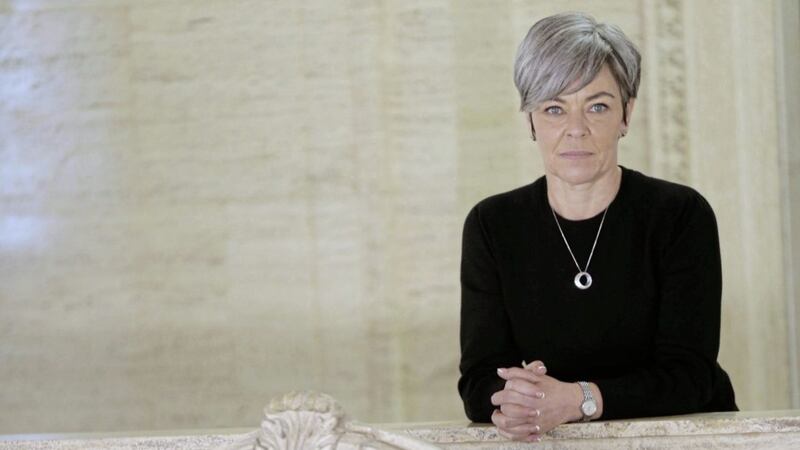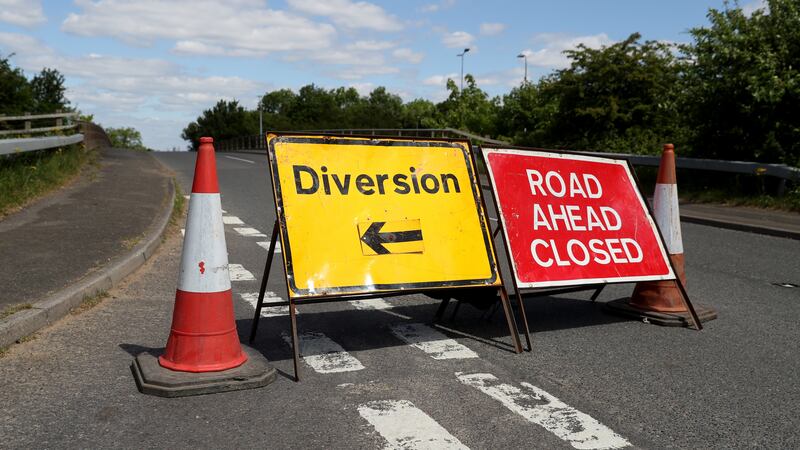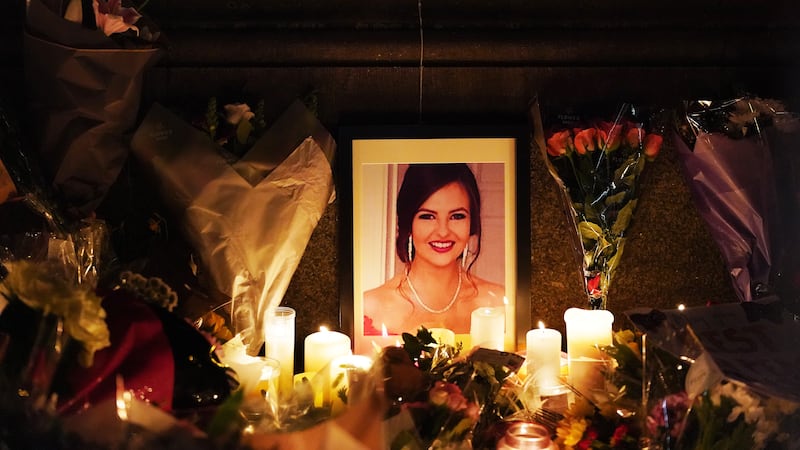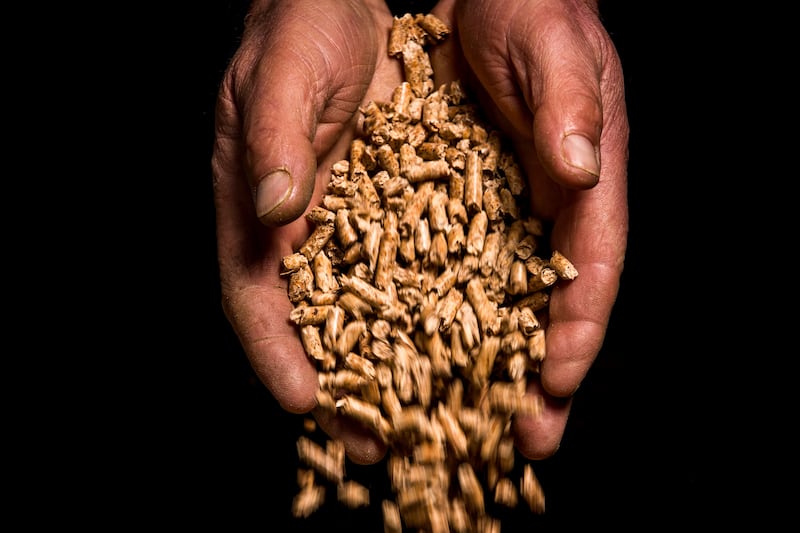THERE'S a busy few months ahead for Green Party leader Clare Bailey – as long as Stormont isn't collapsed prematurely.
The South Belfast MLA currently has not one but two private member's bills progressing through the assembly. It's a situation that's complicated by the fact that DUP minister Edwin Poots has tabled legislation that is in direct competition to hers and may yet emerge as MLAs' favoured pathway to carbon reduction.
The passage for her second private member's bill – creating 'safe spaces' or buffer zones around reproductive health care clinics – is arguably more straightforward but given the assembly's differing opinions on women's reproductive rights, it's unlikely to advance without some controversy.
Nevertheless, she says she is "very confident" that it will ultimately receive royal assent.
It is based on a pledge the 51-year-old made in the 2016 election campaign that was put on ice during Stormont's three-year hiatus. It is driven in part by the Green leader's experiences acting as a client escort at the Marie Stopes Clinic in Belfast, where she was "spat at, assaulted, called a murderer, splashed with holy water – so many horrific stories".
Yet she insists that her proposed legislation has nothing to do with terminations and is more about closing loopholes in the law and the "hands-off approach" that has allowed women to be exposed to a "deliberate campaign of harassment and public shaming".
"While there’s lots of debate about abortion and a whole gambit of opinion on that, this is about safe access to healthcare," she says.
She takes heart from recent all-party condemnation of anti-vaccination protests at clinics and is hopeful the Abortion Services (Safe Access Zones) Bill, which was introduced to the assembly earlier this month, progresses to the second stage.
It's the Green leader's other private member's bill – launched in October last year – that is arguably far more ambitious in its aims.
Her Climate Change Bill (now known as bill 'No 1' to distinguish it from Mr Poots') was supported by all Stormont's parties bar the DUP. It seeks to reduce the north's carbon emissions to net zero by 2045, a timeframe the minister and his allies in the agrifood sector regard as unrealistic.
Ms Bailey notes that the minister "seems to have upped his sense of urgency" since her bill was first tabled but believes what he's proposing "is much more narrow".
"I would say it’s more of a low carbon bill than a climate bill," she says.
"There are some good elements – well thought-out carbon budget policies, for example – but for me they don’t go far enough."
Mr Poots' bill includes a target of 82 per cent carbon reduction by 2050, as part of the UK's overall target. His argument for a less ambitious target is supported by the Climate Change Committee (CCC), a UK advisory body, which last year said that primarily due to historically high emissions from livestock, Northern Ireland would not be able to reach net zero within 30 years.
Ms Bailey doesn't accept the assessment provided by the CCC, which has received £0.5m funding from the minister's department over the past five years. She notes how the committee was critical of the lack of regionally-specific research and the "lack of a baseline".
"They can only act on information received," she says.
"The CCC gave that as a minimum target for what can be achieved, whereas our bill sets a net zero target for 2045 and that’s based on best practice. We've seen other jurisdictions and countries, such as Scotland and Germany, move to 2045 – Northern Ireland has been a climate laggard.
"We’ve done very little if anything at all to address the climate emergency, yet we are a huge emitter. We need to do our fair share."
She suggests that the recent report by the UN's Intergovernmental Panel on Climate Change (IPCC), which placed humanity on a 'code red' situation in relation to climate change, may actually lead to more ambitious carbon reduction targets emerging from the forthcoming COP26 summit.
The Green leader believes a joined-up approach, with centralised oversight, is essential if any legislation is to be effective.
She argues that the executive has continued to promote policies which "do increased environmental damage", citing the Going for Growth strategy, which drove farm intensification. It has led to a crisis with ammonia, polluted waterways and poor air and soil quality, she says.
However, Ms Bailey doesn't blame farmers per se but the policies and economic incentives that lead to a certain type of production. Instead, she argues that many of agrifood sectoral groups who are critical of her bill don't have farmers' best interests at heart.
She concedes that agriculture may not be as prepared as other sectors to meet the challenges of carbon reduction immediately but argues that in itself isn't reason to lack ambition
"We put in place the strategies that economically awarded the agrifood sector to get to where they are today, so I suggest we put the strategies in place that economically rewards the sector to get into a better place," she says.
Her proposals include so-called just transition principles, which seek to ensure that no single section of society bears a disproportionate burden from the legislation. She also believes the strategy should be based on the "island as a whole, regardless of your constitutional position – climate overrides that".
"We’re all going to be impacted by the mitigation measures and by climate change – not just farmers – but what we need are proper policies and economic policies to sustain ourselves," she says.
In regards to the revelation earlier this month in The Irish News that Ms Bailey has met Mr Poots to discuss what the minister termed the “progression or amalgamation” of the two competing bills, she insists she has "no issues or bother continuing those discussions" and has met the minister's officials twice since.
"We haven’t reached any agreement, we’re just talking through the detail of one bill as opposed to the other, is there things we can agree on?" she says.
The Green leader says she's "not sure an amalgamation can happen" but she is encouraged that "everybody seems committed to ensuring Northern Ireland has specific climate legislation before the end of this mandate".
But will she accept the minister's 82 per cent by 2050 target?
"There are things we can’t agree on - the target is the most obvious," she says.
"I can’t agree to an 82 per cent target and I would hope that every co-sponsor behind the bill, including those who signed up to net zero in their own manifestos, commit to that."







